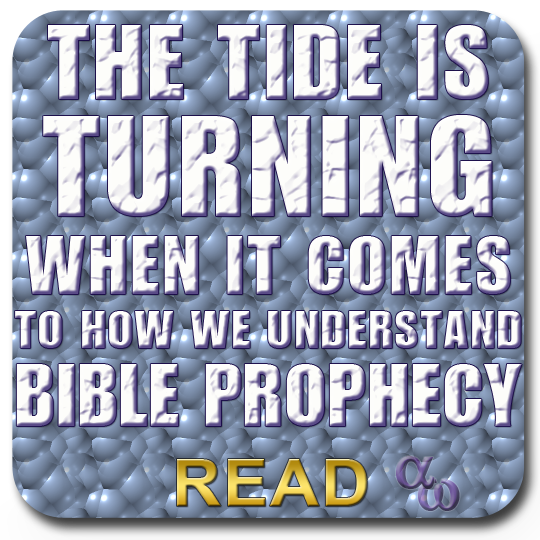
by Andrew Corbett | Jul 4, 2018 | Bible Prophecy |
I remember as a young boy going to church on a Sunday evening and hearing the Bible Prophecy teacher give his end-times-chart-on-the-bedsheet-on-the-wall talk and feeling both excited and scared.”Excited” because it was reassuring to hear how accurate the Bible was in matching prophecy with history. “Scared” because the Bible apparently said that the ‘last days’ were going to be hell-on-earth! I was taught that the USSR was the bear of Ezekiel and also described as Gog and Magog. I was told that the Anti-christ was alive today in America and already plotting his world take-over. I heard that a time of Great Tribulation was coming on the earth to punish Israel for rejecting their Messiah and forming an alliance with the Anti-christ who will eventually rebuild Solomon’s Temple in Jerusalem. This would all lead to the battle of Armaggeddon where millions of people would be killed in the mother of all battles. But most evangelistically I was told that I could escape this coming doom by committing my life ot Christ and therefore qualify for being “raptured” just before this final seven year period began.
Like my interstate pastor friend, I just thought this was the traditional, orthodox doctrine. I mostly ignored the inconsistencies this understanding presented. I just let the questions mount. Then one day when I was still young, I heard another pastor teaching about end times who seemed to suggest that not only wasn’t this the traditional way of understanding Bible Prophecy, it was also not orthodox! That is, he said that the Bible couldn’t teach this. He called it “Dispensationalism”. Back then, Hal Lindsay was the paperback champion of Dispensationalism while Dr John F. Walvoord (of Dallas Theological Seminary) was the hardback champion. In my boyhood church no-one questioned these Bible authorities. Dozens of Bible Prophecy teachers were spawned by these authors. Each one reiterated the Dispensational interpretation of the Bible and too few of us realised that we weren’t just being told how to interpret Bible prophecy…

by Andrew Corbett | Jun 25, 2018 | Hermeneutics |
Professors Gordon Fee and Douglas Stuart state that the entire framework of the New Testament is eschatological (How To Read The Bible For All Its Worth, 2003:145). “Eschatology”, they write, “has to do with the end, when God brings this age to its close.” Hence my double entendre heading – Understanding what the Bible teaches about “finally” (Eschatology) is necessary in order to understand what the New Testament teaches…
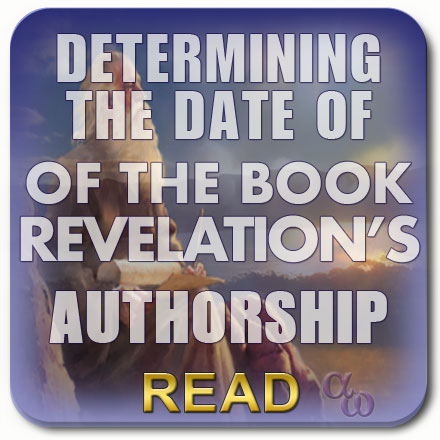
by Andrew Corbett | May 31, 2018 | Book of Revelation |
It would be remiss of any serious student of Revelation not to at least do a cursory examination of the historical context to which Revelation is back-dropped. The first point of reference would have to be to determine when Revelation was written. Most scholars regard there being only two possible dates. Dr. Leon Morris explores this adequately in his Tyndale Commentary series volume on Revelation, and I recommend that this widely available commentary be read. In the case of most books of the Bible, determining the date of its authorship, while certainly important, is not necessarily crucial to its interpretation. But this is absolutely not the case with the Book of Revelation. Some tradition has up until recent times regarded the date Revelation’s authorship to be around 95AD. This has been based almost entirely on a misunderstanding of one vague statement by the second century Church Father, Irenaeus.
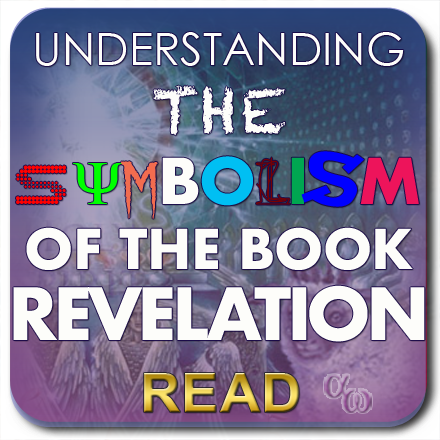
by Andrew Corbett | May 30, 2018 | Book of Revelation |
The Book of Revelation has variously been described as so mysterious that it simply cannot be understood. But this has not stopped some from speculating about what its symbolims means. Such speculation is based on the assumption that the Book of Revelation is uniquely symbolic. But what are the implications of the idea that Revelation is written with consistent Biblical symbolism in how we understand its message?
In fact, it can be shown that the Book of Revelation is saturated in Old Testament imagery and symbolism. Understanding this should help us to avoid abusing this profound Book with ridiculous speculation that forces such contemporary events as the European Union, the United States, modern Iran, and computer technology into the text.
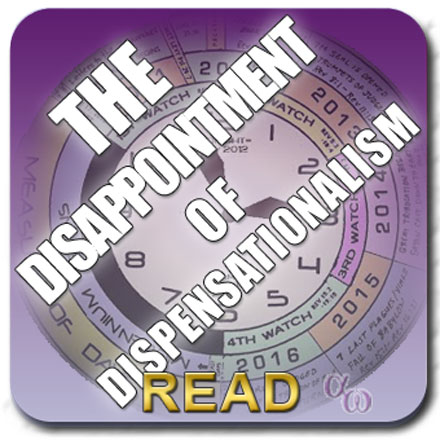
by Andrew Corbett | May 28, 2018 | Bible Prophecy |
Dispensationalism comes in various forms. A “dispensation” is a period of time. An era. In its most extreme form it regards God as having multiple plans of salvation depending on the particular dispensation. These dispensations generally commence with the Dispensation of Innocence and include other Dispensations such as the Dispensations of Works, Law, and Grace. This is contrasted by the orthodox Christian view of regarding God only ever having one means of salvation: the work of Jesus of Nazareth, especially His suffering, death and resurrection. But Dispensationalism is most notably distinguished from orthodox Christianity in the way it regards Israel. Dispensationalism says that God has a distinct plan and salvation for Israel. The roof of Dispensationalism is then supported by the walls of a novel form of end-times teaching. This includes such things as a rapture of the Church, a two-part Tribulation period, the global rule of an Anti-Christ, the reconstruction of a Temple in Jerusalem, the Battle of Armageddon, and then the Return of Christ. Dispensationalist Bible Prophecy teachers have gone to great lengths in their predictions of what the future holds based on their interpretation of the Bible. I have written a separate article on some of these predictions. But there’s a problem. A big problem!
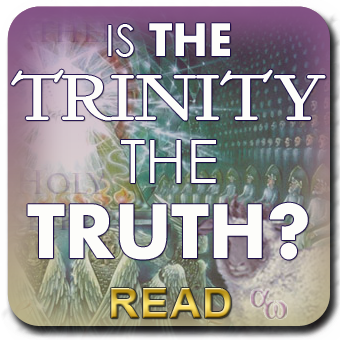
by Andrew Corbett | May 14, 2018 | Theology |
There is no greater mystery than God. And perhaps there is no greater quest than to answer the question who is God? as truthfully as possible. When the identity of God is discussed there are a wide range of ideas put forward. Some have gained acceptance and formed the basis for the world’s religions. For those who have realised that God must have an identity they conclude that He must be a person. This is called theism- or more precisely, monotheism. Judaism, Islam, and Christianity are three great monotheistic religions of the world. But Christianity is further distinguished from these other monotheistic religions by identifying God as Father, Son and Holy Spirit.
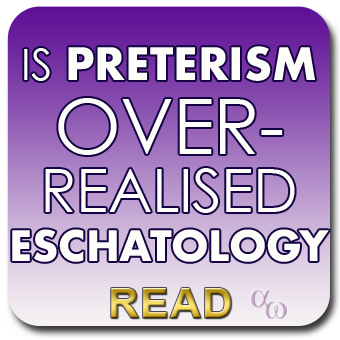
by Andrew Corbett | May 14, 2018 | Eschatology |
Even preachers who claim to have no view on “End-Times” actually do – and usually make it known even if only subtlely. Thus, there are many great Gospel preachers who have built huge churches but who have a lousy eschatology! Then there are some preachers who have dangerous eschatology (such as John Hagee). When those who have some proficiency in the field of eschatology dare to disagree with any of these mega-church “big guns” about eschatology (even in a constructive manner), it is not surprising (but still disappointing) to be called “heretical” by them. To these pop-preachers, Preterism is merely “over-realised” eschatology. Here’s why it isn’t…
Perhaps these preachers have this view because they have accepted a caricaturisation of Preterism and not a well informed understanding of it. This is understandable from those preachers who are generally not careful in their in the research and tend to be more inspirational than exegetical. But when this criticism comes from one of the most popular preachers in the world (and a mega-church pastor) many Preterists are left bewildered for good reasons.
There are some preachers who deserve to be regarded as among the best in the world. Yet, many of these preachers have a false idea about what “Preterism”. More and more of them have been decrying Preterism and denouncing it as it has grown in its appeal. For example, one popular preacher alluded to Preterism as “over-realised eschatology”. Since this preacher has such a huge following, his ill-informed comments about Preterism were even more disappointing. I wish to respond to his claim that Preterism is “over-realised eschatology”.

by Andrew Corbett | May 11, 2018 | Bible Prophecy |
I’m currently on Annual Leave. Having just spoken at the A2A Conference on the Gold Coast of Queensland, we chose to tack onto the first part of our leave some time on the Fraser Coast (which is north of the more famous, Sunshine Coast). To our surprise and delight, the motel where we had booked our couple of week’s stay upgraded us to a room which had cable TV. Taking advantage of this perk I channel surfer to the Christian channels and landed at Daystar where Irvin Baxter was interviewing Pastor Paul Begley on his program, End Of The Age (May 7th, 2018). I had never encountered either of these men, who struck as being very zealous and sincere. But what they stated as being ‘Biblical’ and clear signs from the Bible that we are living at the end of the age was bewildering. And even more bewildering was their claim that God was using President Donald Trump as a modern-day Cyrus who would help to usher in the return of Christ by moving the American Embassy from Tel-Aviv to Jerusalem!
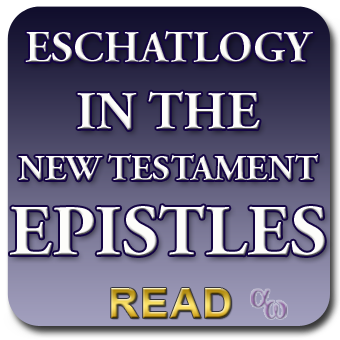
by Andrew Corbett | Apr 5, 2018 | Eschatology |
New Testament epistles are sprinkled with eschatological references which have led to confusion and the belief that the rules of hermeneutics must be re-written to accommodate particular eschatological systems. We will now survey how these Epistles make eschatological references and how we might best understand them.
A Sense of Imminence
¶ The end of all things is at hand; therefore be self-controlled and sober-minded for the sake of your prayers.
First Peter 4:7
The eschatology found in the New Testament Epistles conveys an expectation of imminence. Each of the writers had a sense that something was about to happen very soon. It could be argued that they were misguided and that the Scriptures accurately recorded their misinformed views. We see evidence of this sort of thing throughout the Old Testament where misinformed human perspectives were accurately recorded in God’s inspired Word. This includes such statements like, “from the rising of the sun” (Psalm 50:1; Isaiah 45:6; Malachi 1:11). Of course, we know that the sun doesn’t rise but from the perspective of the human authors it appeared to. But this doesn’t seem to be the sort of thing happening in the Epistles. Unlike the genre of the Psalms or Prophets, these eschatological statements found in the Epistles are not poetic. They are presented as statements of fact – often linked to an injunction (1Peter 4:7; Hebrews 10:24-25). If it is the New Testament perspective is actually just the accurate recording of misguided human opinion, it then makes the linked injunctions (moral commands) redundant.

by Andrew Corbett | Mar 17, 2018 | Bible Prophecy |
The seven feasts of Israel were prophetic pictures of God’s redemptive plan for mankind. Most of them can be proven to be fulfilled, but there are still some to be fulfilled…
The wonder of God’s amazing revelation in Scripture is that not only has He spoken directly of His plan for mankind, but that He has also given us some beautiful historical pictures of His plan of redemption embedded within the precepts of the Mosaic Law. The ceremonies, rituals, and prescribed festivals each have priceless insights into the life, work, death and resurrection of the coming Messiah- Jesus Christ. Understanding these prophetic pictures should not just amaze us, they should inform and reassure us that God’s plan of redemption through Jesus Christ has unfolded perfectly and will continue to do so.
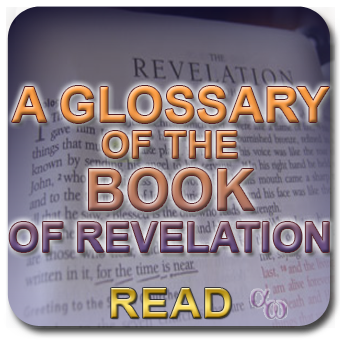
by Andrew Corbett | Mar 16, 2018 | Book of Revelation |
Some scholars regard the language of Revelation as “apocalyptic”. By this, they mean- ultimate doom language presented in symbolic terms. If we accept this narrow definition as the working definition of “apocalyptic” then we are forced to reject the Book of Revelation as truly being apocalyptic language. The reason for this is that the Book of Revelation is not about the end of the world as much as it is about the end of something else.
Other scholars take a broader definition of the word apocalyptic and employ it to simply mean prophetic symbolism. Clearly the Book of Revelation is full of symbols. The challenge for the Bible student is to learn its language and interpret what the symbols mean. We do this by following the standard rules for sound Bible interpretation.
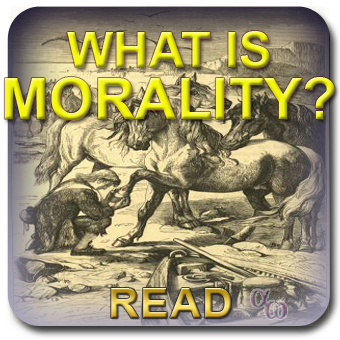
by Andrew Corbett | Mar 15, 2018 | Ethics |
The issues of right and wrong are integral to the study of ethics which is a core component to morality. Right is understood as morally right, as distinct from absolutely right such as in the science of mathematics. Naturally, wrong is understood as morally wrong, as distinct from incorrect. Moral is understood to be: the best individual and social outcome. As Christians we believe that the best individual and social outcome is only achieved when the mind of God is sought and followed. In the Old Testament era, this was encapsulated within the Decalogue (The Ten Commandments). Now in the New Testament era, its understanding is enhanced by Christ’s teachings.
In the story, Gulliver’s Travels, the author continually depicts Lemuel Gulliver travelling among different peoples who each reflect an aspect of British morality and culture. After describing the British as either war-mongers, snobs, greedy, or, out-of-touch intellectuals, he finally concludes with a scene where Gulliver travels to an island of savages, called Yahoos. These savages are caucasian, filthy, and promiscuous. Also on this island are horses (referred to as Houyhnhnms). The Houyhnhnms are cultured. They know nothing of lying, greed, or stealing. Each Houyhnhnms is committed to just one other Qwinum as their spouse.












